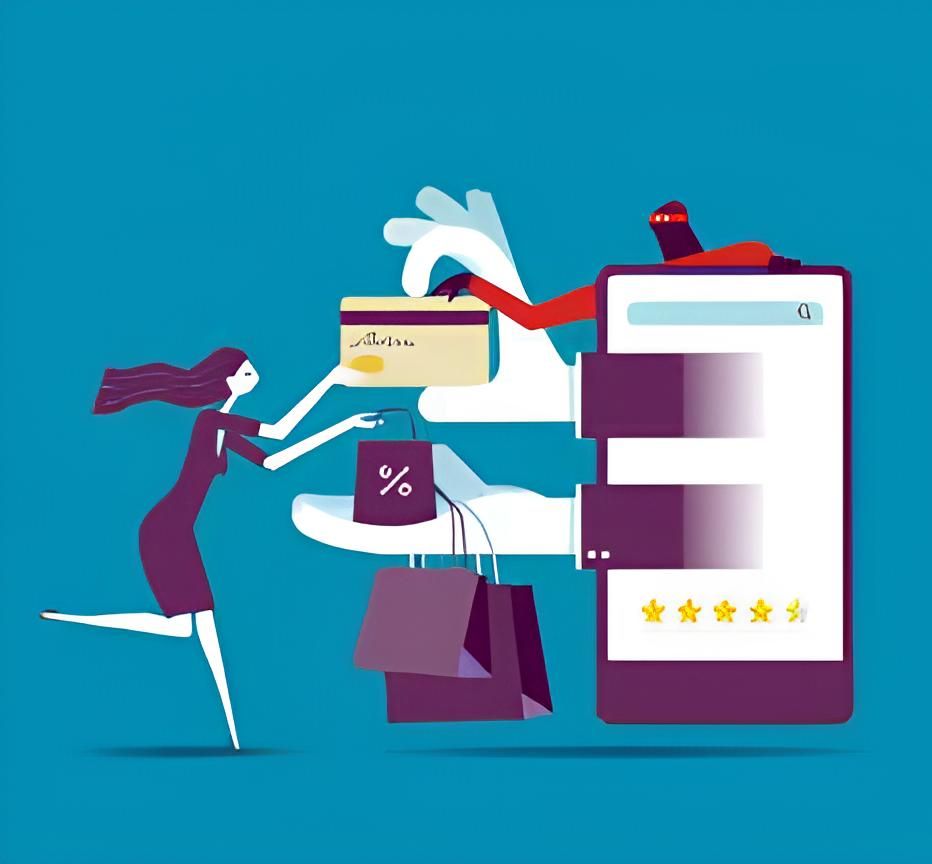Scams, Fear & Me: Confessions of a Nearly-Swindled Shopper:
Discover the 5 most common scams — from phishing emails to fake online shopping deals — and learn how to spot and stop them. Real stories, simple tips, and practical ways to protect yourself and your family.

Scams, Fear & Me: Confessions of a Nearly-Swindled Shopper
(And Why Knowledge Really Is Power)
"Knowledge is the antidote of fear."
— Ralph Waldo Emerson
Written years ago, but oh-so-relevant today.
Let’s be honest: buzzwords like “cybersecurity,” “scams,” and “crypto fraud” feel like they’re everywhere — and for good reason. Your phone rings and there’s a pause before someone speaks. Is this what they call a scam? Or is it just... lag?
We hear so many scam stories now that it’s hard to know what’s real and what’s suspicious. And for those of us who aren’t super techy, the fear is very, very real.
So how do we protect ourselves, our kids, and our parents — and ease some of that fear?
Simple. We learn.
🧠 First things first: What actually is a scam?
A scam is a sneaky, deliberate trick designed to cheat or defraud you — usually out of money, personal info, or both. It’s all about trust manipulation, urgency, and impersonating someone official to get you to act fast without thinking.
Sounds intense, right?
But don’t worry — I’ve got you. Let’s break it down, one scam at a time. Because once you know the tricks, you can spot them a mile away.
🔟 The Top 5 Scams You’re Most Likely to Fall For
(and how to shut them down like a boss)
1. Phishing Emails & Smishing Texts
“There’s been a large transaction on your account. Click here if it wasn’t you.”
I know, heart racing already. You feel that panic, right?
But take a breath. This is classic scammer psychology: create urgency, get you to act fast, and boom — they’ve got your info.
What to do?
Don’t click. Look at the email address or URL. Does it say hsbc.com or chase.com? Or is it something like s3ure-login-hsbc-info-alert.uk?
Exactly. Gibberish = fake.
Close it, delete it, sip your coffee. You’ve just dodged a scam.
Pro tip:
On your phone, hover (don’t click!) over the link. It’ll show you the real web address before you go anywhere.
2. Tech Support Scams
You’re online minding your business (or streaming dodgy football matches 😅) when suddenly—BAM!—a message pops up:
“A virus has been detected. Call now!”
Ugh. Not today, scammer.
They’ll offer to “fix” the virus for a small fee, but really, they’re just after your info. Or worse — remote access to your device.
What to do?
Close the tab. Run your own antivirus scan. Don’t click. Don’t call. And definitely don’t pay.
You’ve got this.
3. Romance Scams
We’ve all seen Tinder Swindler. We all think we’d never fall for it.
But… you start chatting with someone online, they’re lovely, charming, a little too perfect. Then suddenly, disaster strikes! A medical bill, a family emergency, they need help — and you’re the only one who can save them.
Cue emotional manipulation.
What to do?
Stay kind, but cautious. Never send money. If someone online is constantly unlucky and always needs cash — 🚩🚩🚩
Support them emotionally, sure — but don’t fund their fictional tragedy.
4. Online Shopping Scams
(AKA: The time I got scammed)
Yes. Me. Writing this blog. Teaching you about scams.
I saw a gorgeous Dior bag online — 80% off! Instagram seller seemed nice, had videos, reviews, even offered free shipping. Only catch? They wanted a bank transfer.
And like a total mug, I paid.
2 weeks later: no bag. 4 weeks later: no reply. 2 months later: reality check. I’d been scammed.
What to do?
If it’s too good to be true… you know the rest.
Always pay through secure methods (PayPal, credit card — NOT bank transfers!). Use trusted sites. Check reviews. And ask yourself, “Would Dior really sell this for 80% off on Insta?”
Did I learn my lesson? Oh yes.
Did I ever get the bag? No.
Did my bank refund me? Thankfully, yes.
5. Impersonation Scams
“You’ve underpaid your taxes. Pay immediately or you’ll be prosecuted.”
Sound terrifying? That’s the point.
Scammers love pretending to be official agencies like HMRC, IRS, or gov.uk. They might offer a fake refund or threaten a fake penalty — either way, they want you flustered and ready to pay.
What to do?
Same drill. Check the sender email or number. Go directly to the official website. If in doubt, call the agency yourself using a number from their site — not the one in the text.
🎯 TL;DR: How to Outsmart a Scammer
Here’s your cheat sheet:
✅ Don’t click links unless you're 100% sure
✅ Hover to check URLs
✅ Don’t share personal or financial info
✅ Use secure payment methods
✅ Ask: Would my bank really contact me like this?
🧩 Part 2 Coming Soon…
I know, I know. I promised you the Top 10 — but I’ve only given you 5.
Blame life. Full-time job, husband, child… you get the gist.
But trust me — Part 2 is coming, with more juicy scam stories and some real tips about:
- Crypto cons
- Fake charities
- Investment frauds
- …and more personal oops moments 🙈
💬 Final Thoughts
Scammers thrive on fear, but as Emerson said: “Knowledge is the antidote.”
So let’s use it. Let’s stay sharp, share stories, and help each other outsmart the fraudsters.
You, my friend, are smarter than a scammer.
(And yes, even if you once bought a fake Dior bag.)
📢 Share the Love (Not the Scam)
Know someone who needs to read this?
Send it to your mum. Forward it to your mate. Post it in your group chat.
Let’s protect each other — one scam story at a time 💪

